Faith and Politics
![Senator Richard Burr photo courtesy US Senate [Public domain], via Wikimedia Commons](https://sojo.net/files/styles/medium/public/blog/Richard_Burr_official_portrait_crop-295x369.jpg)
Citing the need for transparency in the U.S. record on human rights, nearly 200 clergy and religious leaders from North Carolina are seeking the public release of a 6,000-page Senate intelligence report on U.S. torture of terrorism detainees after 9/11.
The letter, dated Aug. 27 and released to the media on Thursday, was sent from the North Carolina Council of Churches in Raleigh to Sen. Richard Burr, a North Carolina Republican who sits on the Senate Select Committee on Intelligence.
The letter, signed by 18 bishops, including the leaders of both of the state’s Catholic dioceses, stated that in light of conflicts in Syria and around the Middle East, transparency on U.S. torture practices was needed.
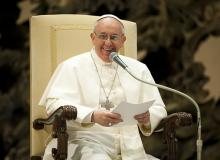
Pope Francis on Thursday rocked the Catholic Church and surprised the wider world with a free-ranging interview that charted a course away from an institution that’s “obsessed” with a few sexual and moral issues and toward one that is more pastoral, less clerical and less doctrinaire.
But amid the widespread praise for his remarks – “Catholic is the new cool,” tweeted National Journal’s Ron Fournier – and some pointed criticism from the pontiff’s right flank, there lurks a critical, unanswered question: Can Francis make his vision for the church a reality?
More than detailing a list of reforms or policy change he hopes to make — which may yet happen, after time and extensive deliberations — the pope was sketching out a pastoral vision for the church, and modeling a way for clergy to speak and relate to their flocks.
In order to replicate that model, Francis needs enough time to appoint bishops who share his views and who can in turn encourage and promote like-minded priests and seminarians. In many ways, the type of change Francis envisions will take a generation or more.
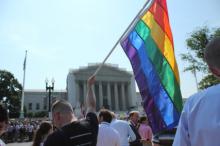
After keeping quiet while Maine, Maryland, Minnesota, and others approved gay marriage, Mormon leaders are once again speaking up — but with a new, post-Proposition 8 tone and emphasis.
This time, it’s in Hawaii, which is poised to debate proposed legislation making same-sex marriage legal.
In a letter dated Sept. 15 and read to congregations across the state, Hawaii Mormon leaders urged members of the Church of Jesus Christ of Latter-day Saints to “study this legislation prayerfully and then as private citizens contact your elected representatives in the Hawaii Legislature to express your views about the legislation.”
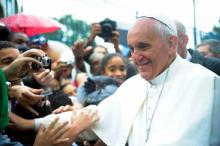
Wading into ongoing debates over religion and politics, Pope Francis on Sunday gently chided Christians to pray for politicians, saying “a Christian who does not pray for his leaders is not a good Christian.”
The pope’s remarks during a two-hour closed-door meeting of Roman clergy did not touch on more controversial issues like the separation between church and state, abortion, or refusing Communion to Catholic politicians who are not in sync with church teachings.
Instead, Francis quoted St. Paul, who urged prayer “for kings and all who are in high positions, that we may lead a peaceful and quiet life.”

Even as the world’s powers grasped for a last-minute resolution to the crisis in Syria, it remained an open question whether any amount of diplomacy could prevent the conflict from claiming at least one more victim: the classic Christian teaching known as the “just war” tradition.
The central problem is not that the just war doctrine is being dismissed or condemned, but that it is loved too much. Indeed, both sides in the debate over punishing the Syrian regime for using chemical weapons are citing just war theory, but are reaching diametrically opposed conclusions.
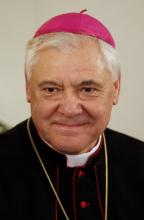
A progressive theological current that emphasizes the Catholic Church’s closeness to the poor and the marginalized but was subject to decades of hostility and censure is now finding increasing favor in the Vatican under Pope Francis.
Francis, who has called for “a poor church for the poor,” will meet in the next few days with the Rev. Gustavo Gutierrez, a Peruvian theologian and scholar who is considered the founder of liberation theology.
The meeting was announced on Sunday, Sept. 8, by Archbishop Gerhard Ludwig Mueller, prefect of the Congregation for the Doctrine of the Faith, the Vatican’s doctrinal watchdog, during the launch of a book he co-authored with Gutierrez.
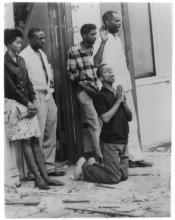
They were among the youngest martyrs of the civil rights movement, four young black girls — three 14-year-olds and one 11-year-old — whose deaths in a church basement horrified a nation already torn apart by segregation.
This week, 50 years after the Ku Klux Klan bombing at Sixteenth Street Baptist Church in Birmingham, Ala., shook hopes for a colorblind country, the four girls are getting their due.
Addie Mae Collins, Cynthia Wesley, Carole Robertson and Denise McNair were posthumously awarded the Congressional Gold Medal on Tuesday (Sept. 10), a day after a piece of shattered stained glass from the church was donated to the Smithsonian.

I am an evangelical.
But what does that label even mean anymore?
A few days ago I was sitting around chatting with a few new friends at my Bible college. One of them was a young Canadian and another was a middle-aged former U.S. soldier. We ended up on the topic of politics and how many companies and businesses in the United States give millions to political and social causes and somehow we ended up talking about McDonalds.
My USAF friend made the statement: “McDonalds is terrible because it gives millions to causes and organizations that you [speaking of me] directly oppose: LGBTQ rights campaigns, Planned Parenthood, etc.” I was taken aback because my new friend simply assumed that because everyone in this conversation was an evangelical meant that we all held a certain set of political ideals and social standards. For him — for millions of others — evangelical meant something far more than a theological persuasion. In the midst of this awkward moment, I decided to reveal my identity as a politically progressive/liberal evangelical, which automatically caused an immense amount of tension to arise in our conversation. How could I, a Bible-believing evangelical, possibly support the LGBTQ community’s right to marry? How could I think that Planned Parenthood was doing any good and that President Obama’s plan to rapidly decrease the numbers of abortions in the United States was progress in any way? Let’s just say that the conversation ended on a pretty tense note.
This encounter really caused me to re-reflect on the magnitude that the term evangelical has been hijacked by political and social agendas over the past decade and how a new generation of evangelicals is emerging that does not at all identify with any of the social and political baggage that has come to represent evangelical Christianity. Which brings me back to my original question: What does the label evangelical even mean anymore?
I can tell you this — it doesn’t mean that I am a Republican. It doesn’t mean that I am a Democrat. It doesn’t mean that I am pro- or anti-anything.

THE ELECTION OF a new pope has brought a spirit of change to the Catholic Church. And while that change will primarily impact Catholics, what the church and the pope say and do can impact all Christians. In a world that desperately needs authentic moral leadership for peace and economic justice, Pope Francis has already continued the prophetic voice of his predecessors. In this issue, we read some tea leaves from the first months of his papacy.
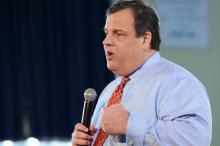
New Jersey’s newly enacted ban on gay-to-straight conversion therapy for minors violates a licensed therapist’s obligation to “respect the rights of clients to make decisions,” according to a federal lawsuit filed by a Christian counselors group and professionals who use the practice.
The law, signed by Gov. Chris Christie on Aug 19, bars any licensed therapist, psychologist, social worker, or counselor from using therapies to change sexual orientation of children under age 18. Offenders jeopardize their licensed status under the new law, which does not apply to clergy or anyone who is not licensed by the state.
New Jersey is the second state in the nation to ban therapy that purports to change a child’s sexual orientation from homosexual to heterosexual. California enacted the first ban, but Liberty Counsel, a national religious-based legal and public policy group, filed an injunction it before it took effect earlier this year. A judge overseeing the case heard arguments in April and has not issued a decision.
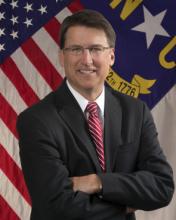
North Carolina became the seventh state to prohibit its judges from considering Islamic law after Gov. Pat McCrory allowed the bill to become law without formally signing it.
McCory, a Republican, called the law “unnecessary,” but declined to veto it. The bill became law on Sunday.
The state joins Arizona, Kansas, Louisiana, Oklahoma, South Dakota, and Tennessee.
Supporters hailed the bill as an important safeguard that protects the American legal system from foreign laws that are incompatible with the U.S. Constitution, while critics argued that the bill’s only purpose is to whip-up anti Muslim hatred because the Constitution already overrides foreign laws.
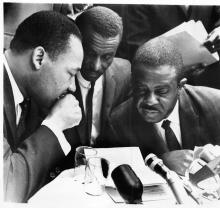
It may be the most famous speech of the 20th century.
Millions of American schoolchildren who never experienced Jim Crow or whites-only water fountains know the phrase “I have a dream.”
And many American adults can recite from memory certain phrases: the Rev. Martin Luther King Jr.’s use of the prophet Amos’ vision of justice rolling down “like waters and righteousness like a mighty stream,” or the line about children being judged not by “the color of their skin but the content of their character.”
To many in this country, “I have a dream” has a place of honor next to the Declaration of Independence, the Emancipation Proclamation and the Gettysburg Address. It celebrates the lofty ideals of freedom.
But scholars say it would be a mistake to celebrate the speech without also acknowledging its profound critique of American values.
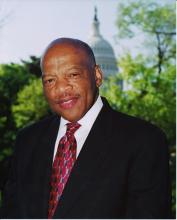
Don Cash had graduated from high school in June 1963 and decided on the spur of the moment to join the March on Washington when he finished his work shift at a nearby warehouse. The Baptist layman is the president of the United Food and Commercial Workers Union’s Minority Coalition and a board member of the Southern Christian Leadership Conference and the NAACP.
“I think we got a long ways to go but I do think that there’s been a lot of changes. I don’t think you’ll ever see what Martin Luther King dreamed in reality, in total. I think we’ll always have to strive for perfection. The dream that he had is a perfect world and I think that in order to be perfect, you have to continue to work at it.”
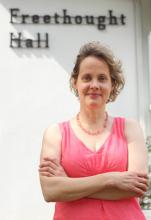
The federal government wants to give Annie Laurie Gaylor a tax break for leading the Freedom from Religion Foundation.
But Gaylor, an outspoken atheist from Madison, Wisc., wants to stop them — and she’s asking a federal judge for help.
The standoff is the latest twist in a court battle over the parsonage exemption for clergy, a tax break that allows “ministers of the gospel” to claim part of their salary as a tax-free housing allowance.

A new study of almost a century’s worth of data shows that the smarter you are, the less likely you are to believe in God.
The study, conducted by Miron Zuckerman, a psychologist at the University of Rochester, examined the findings of 63 earlier studies — one dating back to the 1920s — that measured intelligence and religiosity. The majority of those studies found that more intelligent people were more likely to lack religious beliefs.
“The relation between intelligence and religion is negative,” Zuckerman said. “It was very early in the study that we realized that.”
But Zuckerman is careful to point out that his work — known as a “meta-study” because it examines a range of other studies — does not mean only dumb people believe in God.
Rather, he said, it shows only that more intelligent people may have less need for religion.
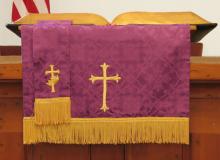
A commission of religious leaders has called for clarity in churches’ ability to endorse candidates and issues from the pulpit without fear of losing their tax-exempt status.
In a report sent Wednesday to Sen. Charles Grassley, an Iowa Republican who has spent years investigating the finances of high-profile televangelists, the commission called the regulation of speech of religious organizations “disturbing and chilling.”
“The IRS guidelines are very vague, so ministers and nonprofit leaders are afraid of the [appropriate] line,” said Michael Batts, the independent commission’s chairman. “We think it can be fixed without creating a monster of unintended consequences.”
The Commission on Accountability and Policy for Religious Organizations grew out of Grassley’s probe of ministry finances and makes recommendations for greater transparency and reform. It is overseen by the Evangelical Council for Financial Accountability, which was founded in 1979 as a watchdog on ethical and financial wrongdoing.
In Wednesday’s report, the commission recommended that members of the clergy should be able to say “whatever they believe is appropriate” from the pulpit without fear of IRS reprisal. Since 1954, IRS regulations allow clergy to speak out on issues but they must refrain from endorsing specific candidates.
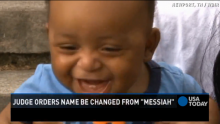
A Tennessee judge should not have barred a couple from naming their child “Messiah,” said the executive director of the American Civil Liberties Union of Tennessee.
On Thursday, the parents of the child appeared in Cocke County Chancery Court in Tennessee because they could not agree on a last name.
Child Support Magistrate Lu Ann Ballew ordered the mother, Jaleesa Martin, to change her son’s name to “Martin DeShawn McCullough.” It includes both parents’ last names but leaves out “Messiah.”
“The word Messiah is a title and it’s a title that has only been earned by one person and that one person is Jesus Christ,” Ballew told the 7-month-old’s parents.
On Monday, a federal judge in New York found the state's stop-and-frisk policies to be unconsitutional racial profiling. The same day, Attorney General Eric H. Holder Jr. announced that federal prosecutors would no longer invoke mandatory minimum sentencing laws for low-level drug offenses.
Together, the two decisions sent strong signals that the country is moving away from the tough-on-crime policies of the last generation. The New York Times reports:
A generation ago, amid a crack epidemic, state and federal lawmakers enacted a wave of tough-on-crime measures that resulted in an 800 percent increase in the number of prisoners in the United States, even as the population grew by only a third. The spike in prisoners centered on an increase in the number of African-American and Hispanic men convicted of drug crimes; blacks are about six times as likely as whites to be incarcerated.
“There was the thought that if we stop, frisk, arrest and incarcerate huge numbers of people, that will reduce crime,” Rudovsky said. “But while that may have had some effect on crime, the negative parts outweighed the positive parts.”
Read more here.
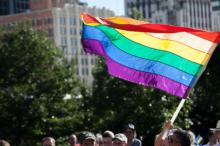
A new voice is emerging in the evangelical community, and it’s turning away from the church’s vocal opposition to homosexuality in favor of a more tolerant attitude.
Researchers at Baylor University found that 24 percent of evangelicals were “ambivalent,” meaning they support civil unions or legal recognition of gay relationships, despite harboring a moral opposition to homosexuality.
“What you have is this increase in people coming out publicly and saying, ‘I don’t want to be a part of this anti-gay rights movement as an evangelical,’” said Lydia Bean, assistant professor of sociology at Baylor and co-author of the study.
The study, “How the Messy Middle Finds a Voice: Evangelicals and Structured Ambivalence towards Gays and Lesbians,” analyzed national data from the 2010 Baylor Religion Survey, conducted by Gallup.
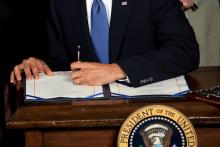
An effort to tweak President Obama’s health care reform bill to fill a gap for church health insurance plans could fail because of Republicans’ insistence on repealing the law.
Without a fix, United Methodist Church leaders say some of their churches could drop current coverage for employees once “Obamacare” takes full effect next year, according to Colette Nies, spokeswoman for the UMC’s General Board of Pension and Health Benefits.
Under Obama’s 2010 Affordable Care Act, more than 50 percent of UMC clergy would qualify for tax credits available to lower- and middle-class families to purchase insurance. But because of the way the law was written, those tax credits cannot be used toward insurance plans churches can offer through government-run exchanges.